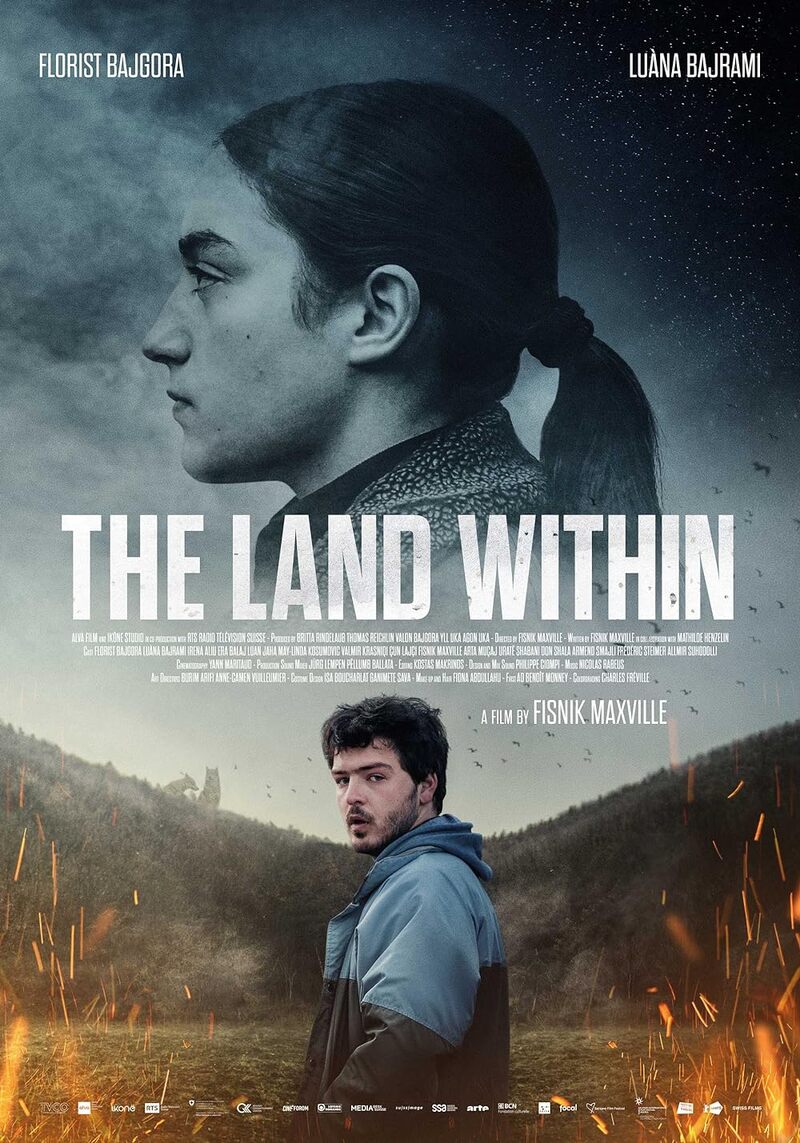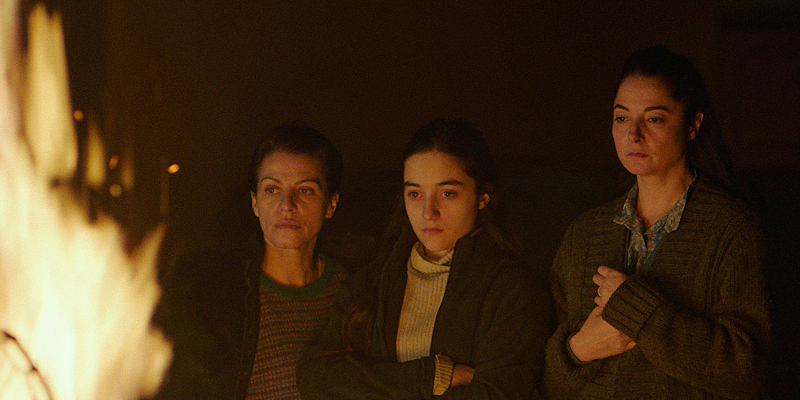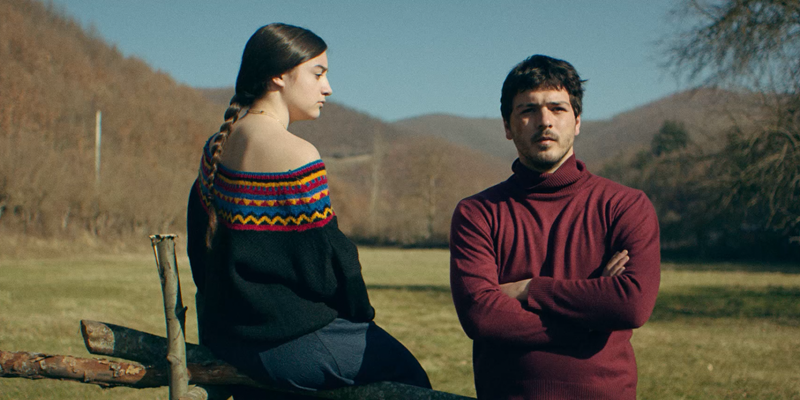
Review by
Eric Hillis
Directed by: Fisnik Maxville
Starring: Florist Bajgora, Luàna Bajrami, Valmir Krasniqi, Irena Aliu, Era Balaj,
Luan Jaha

There's an old saying that advises anyone interested in learning the
history of Russia to acquire a shovel.
The Land Within suggests the same maxim applies to
Kosovo's recent past.
Swiss-Kosovar filmmaker Fisnik Maxville has made several
documentaries exploring the relationship between his two nations, and
his first narrative feature opens in 2008 with a 25-year-old former
Kosovo refugee, Remo (Florist Bajgora), pleading his case to a
citizenship board in Geneva, where he has resided since fleeing his
country a decade earlier. Remo has requested that the process be sped up
as he wishes to return to his village where his adoptive uncle Skender
(Luan Jaha) is on his death bed. Tradition states that a male be
present at the time of Skender's death, and with every other male in the
family having been killed in the conflict, the burden lies with Remo.
Should Remo leave Switzerland before his request for citizenship is
approved, he will be unable to return to his adopted country.

We never learn the result of Remo's request, but he returns to Kosovo
regardless. There he finds the unconscious Skender in a precarious
state, his life support systems reliant upon a not so reliable generator
at his cottage. Tending to Skender is Remo's cousin Una (a role that
sees rising French star Luana Bajrami exploring her Kosovar
roots). Una requested Remo to return with reluctance. Like others in the
village, she feels betrayed by Remo for leaving during the conflict
while others stayed and fought and in many cases, perished. Una is also
uncomfortable with the return of the romantic feelings she has long
harboured for her adoptive cousin.
When a UN crew arrives in the village to excavate a mass grave, long
buried secrets are literally dug up. Una and Remo present a list of lost
family members, but the list doesn't tally with the UN's list as
compiled via the village's registry of births. A woman by the name of
Fatime is unaccounted for. Neither Una nor Remo have ever heard of such
a woman, but they suspect she may be the mysterious face in an old
photograph they find among Skender's belongings.

Through flashbacks to 1985 we learn the identity of Fatime and see how
the young Skender (Valmir Krasniqi) ruled his village with an
iron fist. The ethnic tensions that would violently explode in the
following decade are clearly simmering, with Skender warning of the
threat posed by those from a neighbouring village, and boasting about
how he's prepared for a war he appears to be anticipating with
relish.
These flashbacks suffer from being a little too on-the-nose, with
characters speaking in what sounds more like political speechifying than
any natural dialogue. The film is far more successful in its present day
scenes, where the sins of the past are left ambiguous. Maxville and
co-writer Mathilde Henzelin buck our expectations of this sort of
narrative in how Remo reintegrates into the community he left behind.
Una's initial scorn for Remo's cowardice masks a jealousy towards his
ability to escape the horrors she was forced to stay and witness. The
same goes for Remo's former friends, whom we meet at first dressed for
hunting wolves but giving the impression they've trained the sights of
their rifles on human prey in the recent past. When Remo is invited to
join them on a hunting expedition we expect it to play out like the
hunting scenes in Straw Dogs and
Wake in Fright, with Remo mocked for his perceived lack of masculinity. Instead his
friends express an understanding of why he fled, and ask if Switzerland
is better than Kosovo. Remo doesn't answer.

The threat of wolves descending on the village is employed here in
similar fashion to the bears in Cristian Mungiu's recent Romanian drama
RMN. They're a distraction for a people who seem to need an enemy to face,
and better it be animal than human. When Una finds herself in a face-off
with the wolves after venturing into the woods at night, she finds they
don't pose the existential threat she had been lead to fear. Did the
neighbouring villagers pose a genuine threat or did Skender's hostility
ultimately prove a self-fulfilling prophecy? Like Martin Scorsese's
Killers of the Flower Moon, The Land Within asks us to identify the wolves in the
picture. But in Europe's conflicts, where the enemy in your rifle scope
might look like your brother, and indeed sometimes actually is a family
member, such distinctions aren't always so easy to make.


